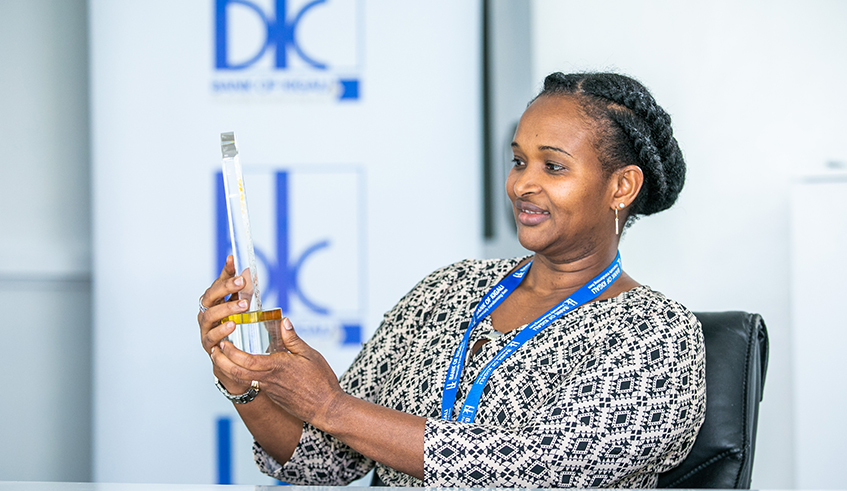Events
FEATURED: Bank of Kigali on winning Gender Equality Seal award

Jackie Nkwihoreze, the head of Audit but also doubles as the chair of the Gender Equality Committee , holds her award during an interview. / Olivier Mugwiza

